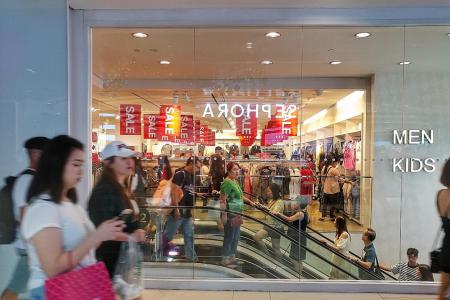PM Lee: Growth slowed but no need for stimulus measures yet
He says slowdown has not taken big hit on jobs, other sectors unaffected
Singapore's economic growth may have slowed significantly this year, but the current situation does not warrant stimulus measures yet, Prime Minister Lee Hsien Loong said yesterday.
However, if the situation gets much worse, the Republic will "promptly respond with appropriate interventions to sustain the livelihoods of our workers".
While workers are worried, the slowdown has not taken a big hit on jobs so far, he said in his Mandarin speech during the National Day Rally at the Institute of Technical Education in Ang Mo Kio.
"We have experienced cyclical downturns like this in the past, and we are confident we can take this one in our stride," Mr Lee said, stressing the Government and union leaders are watching trends closely and prepared to take action.
He outlined Singapore's economic situation, noting growth has slowed mainly due to weakening of global demand and international trade. This has affected the manufacturing sector and trade-related services.
A slump in electronics has impacted overall performance as well, especially in related areas such as precision engineering and wholesale trade. Retail continues to face pressure from online shopping.
But Mr Lee said other sectors have not been affected for now, with retrenchments and unemployment rates staying low. Even so, Singapore has to start preparing for new realities ahead.
Trade tensions between the US and China are expected to hurt the world economy.
Smartphones today contain components designed and assembled in different countries. But if the US does not allow its companies to use components made in China, or to sell microchips to China, Chinese and US companies will have to make their own components, microchips, phones and telecommunications systems.
Such decoupling of the US and Chinese economies could affect Singaporeans, who may find themselves carrying multiple phones overseas to suit local telecom systems, Mr Lee said.
Some think companies may come to Singapore, but Mr Lee said this is not the case. They will likely head to countries with a lower cost base or are nearer to major markets.
However, Mr Lee said Singapore has its strengths - such as an excellent reputation among investors.
"Faced with uncertain future economic prospects, we need to work all the harder to protect this trust that investors have in us," he added.
Get The New Paper on your phone with the free TNP app. Download from the Apple App Store or Google Play Store now


